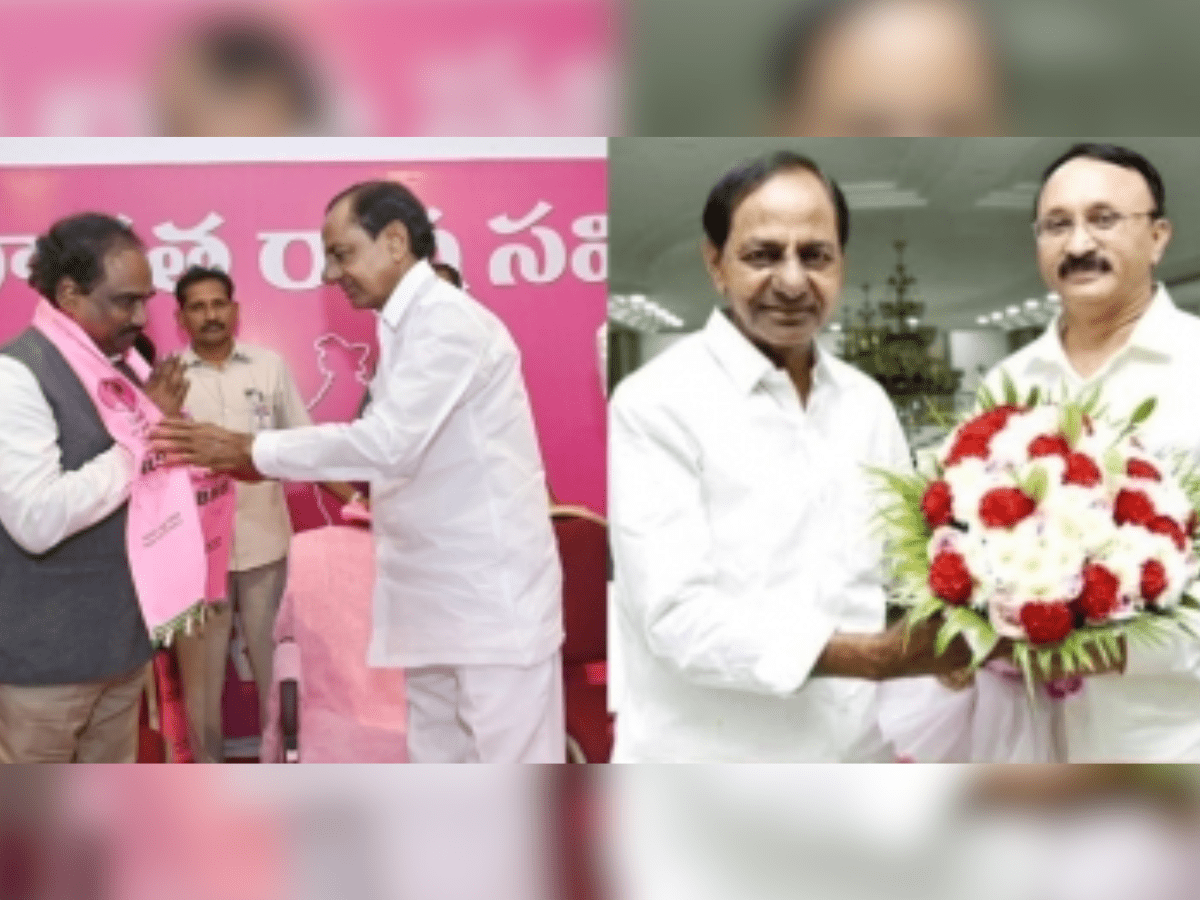
Hyderabad: The Election Commission’s (EC) decision to withdraw state party recognition to Bharat Rashtra Samithi (BRS) in Andhra Pradesh is a setback to the party which was hoping to contest next year’s elections in that state on its poll symbol ‘ambassador car’.
The party, formerly known as Telangana Rashtra Samithi (TRS), headed by Telangana Chief Minister K. Chandrasekhar Rao had appealed to the EC not to derecognise the party as it plans to contest the elections in the neighbouring state next year.
The party leaders say that they were not surprised by the EC’s move. BRS working president K.T. Rama Rao said since the BRS had not contested the elections in Andhra Pradesh in 2019, the action of the EC was a “mere technicality”.
The BRS lost the state party status in Andhra Pradesh as it did not meet the norms and conditions prescribed by the EC.
The poll panel pointed out that the BRS did not contest Assembly and Lok Sabha elections in 2019 in Andhra Pradesh. “Hence, the poll performance of the party did not match any of the criteria laid down for recognition as a state party in the state.”
The BRS leadership also did not appear before the Commission to clear the issues raised by the EC in a letter sent to the party high command. The party, however, had made a request to the EC in this regard.
In March, the BRS had requested the EC not to derecognise the party in Andhra Pradesh as it plans to contest the 2024 elections. The EC had issued a notice asking the party why it should not be derecognised in Andhra Pradesh since it had not contested the Assembly and Parliamentary elections in 2019.
It was in 2004 that the EC recognised the TRS as a regional political party in undivided Andhra Pradesh. As the 2014 elections were held a few weeks before the formal bifurcation of the state, TRS remained a registered party.
In 2018, TRS contested the Assembly elections in Telangana but did not contest the simultaneous Assembly and Lok Sabha elections in neighbouring Andhra Pradesh in 2019. Hence, the EC had served the notice about the recognition status in Andhra Pradesh.
The notice was issued by the EC as part of its routine practice to periodically review the status of recognised parties based on performance in Lok Sabha or Assembly elections.
Since TRS has been recently renamed BRS and it plans to contest the next elections in Andhra Pradesh, the party leadership had urged the EC to keep its status as a recognised party in Andhra Pradesh intact. With respect to other states, it had said it will seek recognition when it gets mandatory seats and vote share.
Political analysts say the EC move is a setback for the BRS which is planning a foray into Andhra Pradesh politics by contesting Assembly elections scheduled next year.
“BRS will contest all 175 seats in the next Assembly elections as well as all 25 parliamentary constituencies, in Andhra Pradesh,” said BRS chief in Andhra Pradesh Thota Chandrasekhar.
Since the BRS is also looking to expand its footprints to Maharashtra soon by contesting the local body elections, its plans are likely to be hampered as it will not get the ‘car’ symbol. The party will have to opt for a free symbol.
It was on December 8, 2022, that the TRS officially became the BRS after the Election Commission gave its consent to the change in the name of the party taken by the TRS general body on October 5, 2022.
The party subsequently opened its national office in Delhi and appointed the party president in Andhra Pradesh.
As the party looks to expand its presence into states like Andhra Pradesh, Maharashtra, Karnataka and Odisha with the 2024 Lok Sabha elections as the target, it hopes to get recognition as a national party from EC with a common election symbol.
“Since the ambassador car symbol given to us has not been allotted to any party in the country, we will request the Election Commission to recognise BRS as a national party. This will give us the flexibility to contest in multiple states,” BRS working president K.T. Rama Rao had said earlier.
However, it is still unclear if the BRS can get the common symbol to contest across states.
Party symbols are allotted only to recognised parties in accordance with the Election Symbol Reservation and Allotment Order of the ECI (Election Commission of India), 1968.
As per the EC’s guidelines, to secure recognition from the ECI as a national party, a party seeking such a status needs to have its presence in no fewer than four states with a vote share of six per cent or four seats in the Parliament representing all four states.
As per EC norms, a political party should fulfil the following conditions to be eligible for recognition as a state party in a state: Secure not less than six per cent of the votes in the last Assembly elections, win two MLA seats; Secure not less than six per cent of the vote in the state in the last Lok Sabha elections and win one Lok Sabha seat; Win at least three per cent of the total Assembly seats in the last Assembly elections; Win at least one Lok Sabha seat for every 25 members allotted to the state in the last general elections; Should secure not less than eight per cent of the votes in the last general elections held to the Lok Sabha or the Assembly in the state.
